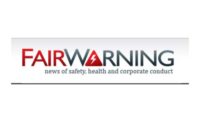Posted with permission from Fairwarning.org:
Fifteen years ago, the federal government said “no” to piracetam.
This was a proposed new ingredient that a company had hoped to market as a dietary supplement. In 2004, the U.S. Food and Drug Administration rejected the company’s application, citing “concerns about the evidence” that supposedly showed piracetam was safe.
The agency hasn’t changed its position. But piracetam is widely available—and hugely popular—as a supplement promoted as boosting cognitive ability. Unintimidated by FDA warning letters, sellers are advertising this forbidden ingredient in online bazaars.
A study published this week by JAMA Internal Medicine identified four supplements sold in the U.S. that contain piracetam, and said so on their labels. Two of the products were labeled simply piracetam, while the other two were sold under the names Compel and NeuroPill. Their manufacturers—BPS, Cognitive Nutrition, Nootropics and Relentless Improvement—could not be reached for comment. A fifth company, Specialty Pharmacy, advertised a piracetam product, but the study didn’t find detectable amounts.
Piracetam, which the study’s lead author, Pieter Cohen, called “the godfather of all nootropics”—a term for supplements that are supposed to improve brain power—is prescribed in European countries for various disorders, including dementia and cognitive impairment. But a review of medical research found that there’s little evidence it works, according to the study.
Taking piracetam at pharmaceutical doses can have adverse side effects, the study said, including anxiety, agitation, depression and weight gain. The products sampled in the supplement study recommended dosages that varied wildly, ranging from 831 milligrams to 11,283 milligrams per day.
“Fifteen years ago, the FDA makes it clear this is not a supplement, and for the last 15 years it’s been sold as a supplement,” said Cohen, a physician with the Cambridge Health Alliance and Harvard Medical School. “So we have some serious problems—both with compliance with the law and enforcement of the law.”
| Want more stories like this? Sign up here to get news alerts. |
Brain enhancement drugs with a variety of ingredients have been booming in recent years. From 2006 to 2015, U.S. sales increased from $353 million to $643 million, according to a recent Government Accountability Office report.
The FDA has repeatedly targeted companies that sell dietary supplements geared toward cognitive enhancement. In February, the agency posted 12 warning letters and five online advisory letters to companies it said were illegally selling products that claimed to cure various illnesses, including Alzheimer’s disease. Scott Gottlieb, the FDA’s commissioner at the time, stated that the letters were part of a broader effort to crack down on the dietary supplement industry.
“Simply put, health fraud scams prey on vulnerable populations, waste money and often delay proper medical care,” Gottlieb said.
But deeper in the press statement, he said that while some companies have stopped selling products after receiving letters, unapproved products continue to be sold to consumers through new websites. The FDA has the power to recall supplements, Cohen said, but when one company stop selling a product another will take its place in the market.
In an email to FairWarning, an FDA official said the agency does not comment on specific studies. Supplement makers are not permitted to make claims about treating diseases, the official said, but the agency has “limited resources to monitor the marketplace for potentially harmful, or otherwise unlawful, dietary supplements.”
As the JAMA study highlights, distributors aren’t secretive about advertising piracetam. At least one online distributor even used piracetam’s long pharmaceutical history as a selling point, claiming that it “has been studied longer and far more in-depth than most dietary supplements.”
As reported by FairWarning, cognitive enhancement supplements are especially popular with middle-aged and older people who are worried about declining sharpness. But Cohen and other researchers said that they have strong appeal with younger professionals who want to maximize productivity.
Lon Schneider, director of the Alzheimer’s Disease Center at the University of Southern California, said many consumers believe they can use various combinations of supplements to improve their mental abilities. Schneider said he’s found some of these supplements in Los Angeles stores and they are cheap.
“It’s unregulated and potentially dangerous, and almost always not subject to any empirical, systematic testing,” he said.
The Consumer Healthcare Products Association, a supplements industry trade group, called the JAMA study’s findings “concerning.”
“CHPA and our member companies strongly support FDA’s efforts to remove these potentially dangerous products from the market,” the group said in a statement.
David Seres, director of medical nutrition at Columbia University Irving Medical Center, said that there are reputable dietary supplement companies who follow the rules and “put what they say in the bottle.”
But, he said, powerful deregulation took away much of the FDA’s ability to control the industry.
In 1993, while the FDA was considering stronger rules for dietary supplements, Mel Gibson appeared in a commercial in which federal agents broke into his home and arrested him for possessing a bottle of Vitamin C. A public letter-writing campaign resulted in more letters sent to Congress about the FDA’s rulemaking than all letters sent during the Vietnam War, Seres said.
The following year, Congress passed the 1994 Dietary Supplement Health and Education Act, which significantly diminished the FDA’s regulatory powers.
“For my money, if I were to be designing the whole thing, I would require that dietary supplements—which are substances taken for health benefits—actually have proven health benefits,” Seres said.
Cohen said that the FDA should create a registry of approved dietary supplements and labels, which would allow consumers to cross-check products with the government.
There are signs the public is warming to the idea of stronger regulations for supplements. In October, the Pew Charitable Trusts published a survey showing that one in eight adults said that they or a family member experienced serious side effects from using supplements. The vast majority of the respondents strongly supported the creation of a mandatory supplement product listing with the FDA.
“We’re moving to a situation where everyone agrees that the FDA needs more data,” Cohen said. “The question is, how is that going to work? Will the law be written by industry to create more administrative paperwork for the FDA to do?”
About FairWarning
This story was reported by FairWarning (www.fairwarning.org), a nonprofit news organization based in Pasadena, Calif., that focuses on public health, safety and environmental issues.


